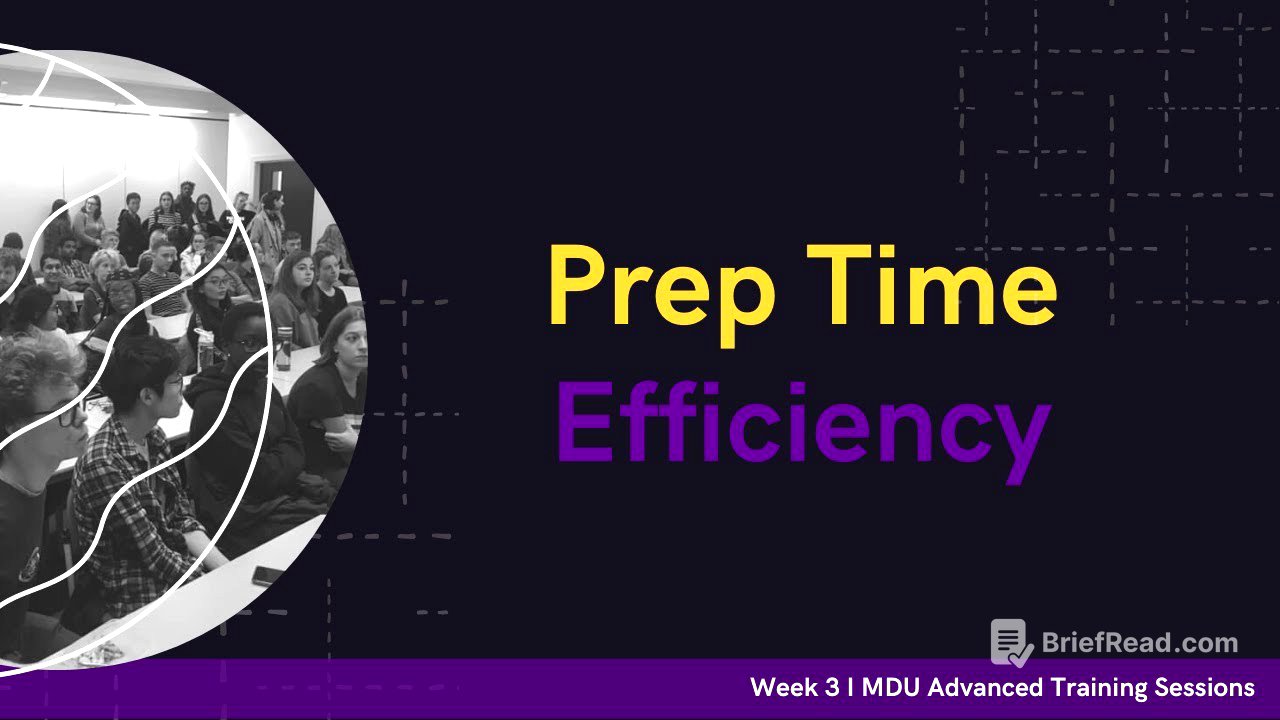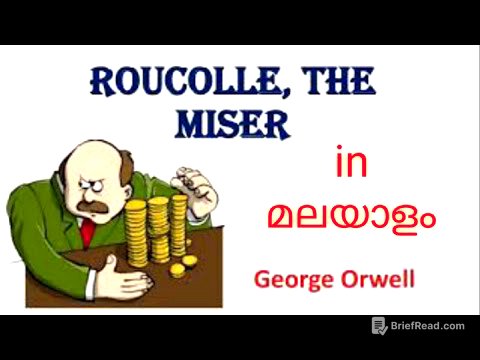TLDR;
This workshop focuses on improving prep time efficiency in debating. It emphasizes making accurate predictions about the debate's trajectory, strategically positioning arguments, and understanding the burdens of the motion. The workshop covers initial clarifications, discussing the opposite side's case, identifying contentions, and generating robust analysis. It also highlights the importance of flexibility and partnership dynamics during prep time.
- Focus on strategic positioning and predicting the debate's trajectory.
- Understand the burdens of the motion and identify key contentions.
- Generate robust analysis and be flexible in your approach.
How to think about prep time [0:44]
Instead of immediately brainstorming arguments during prep time, debaters should focus on predicting the debate's trajectory and strategically positioning themselves. This involves understanding what others will say and how to make your arguments the most impactful. By understanding how a debate will play out, debaters can generate more comprehensive argumentation, weighing, and rebuttals. Prep time should be used to understand the debate's dynamics rather than just prepping one side in isolation.
Initial clarifications [5:10]
Initial clarifications involve sorting out the wording of the motion to understand the specific burdens of the debate. This includes considering the type of motion (e.g., "This House Regrets," "This House Would") and paying attention to every word in the motion. For instance, "This House would aggressively redistribute" requires a different approach than a generic redistribution motion. Additionally, debaters should analyze new and unusual policies by drawing parallels to analogous situations to understand the core issues.
Discuss the other side's case [14:27]
Discussing the opposite side's case early in prep time makes your own case more robust and less vulnerable to obvious attacks. It prevents spending time on analyzing claims that no one will contest and allows you to anticipate closing or backload. This involves outlining the strongest and most obvious claims the opposition could make and identifying the key contentions where the debate will be won or lost.
Exercise: organised religion motion [22:35]
The workshop uses the motion "This House believes it is in the interest of dominant organized religions for their leaders to declare more progressive interpretations of traditional dogma" to illustrate prep time strategy. Initial clarifications involve recognizing the motion type (interests of organized religion), questioning the meaning of "more progressive interpretations," and identifying the problem the motion addresses (decline of religion). The government might argue that progressive interpretations attract young people, while the opposition might argue that it alienates devout followers.
Contention: framing and characterisation [32:07]
The framing contention involves determining whether the debate should be viewed through a Western developed world context or a developing world context. The proposition might argue the Western context is more important due to economic and cultural capital, while the opposition might argue the developing world is more important due to its larger population and the role of religion in social security. Winning this contention means the other side must engage in your chosen context to win the debate.
Contention: compelling analysis [42:10]
This contention focuses on whether young people would be attracted to religion if it became more progressive. The government would argue that progressive values eliminate conflicts between religion and modern values, making religion more appealing. The opposition would argue that religion's unique competitive advantage lies in its traditional rituals and observations, which would be lost with progressive interpretations, or that parents' traditional views would override leaders' progressive messaging.
Contention: weigh-up [49:38]
The weigh-up contention involves comparing the impact of gaining young followers versus alienating devout followers. The government might argue that young people are more important for long-term sustainability and political relevance. The opposition might argue that devout followers are more likely to donate time, money, and political capital, which are essential for sustaining the religion.
Be flexible [58:25]
Every motion requires a different amount of work in different areas of prep time, so debaters must be flexible. Successful partnerships involve complementary dynamics, such as one partner leading the discussion and the other asking critical questions. It's important to check and question each other's assumptions to ensure the case is robust and not easily taken down in the debate. Having a devil's advocate during prep time can help identify weaknesses and strengthen arguments.









